Dr. Luong Bach Van, 79 years old, is the former Director of the Plastics Technology Center (under the former Ho Chi Minh City Department of Industry), and former President of the Ho Chi Minh City Association for Liaison with Overseas Vietnamese. She studied and lived in France for 18 years until she voluntarily returned home in 1978.
"Vietnam needs us"
Dr. Van said the main reason she returned to Vietnam after the country's reunification was summed up in four words: "Vietnam needs us." In return, she affirmed: "My whole life is devoted to Vietnam."
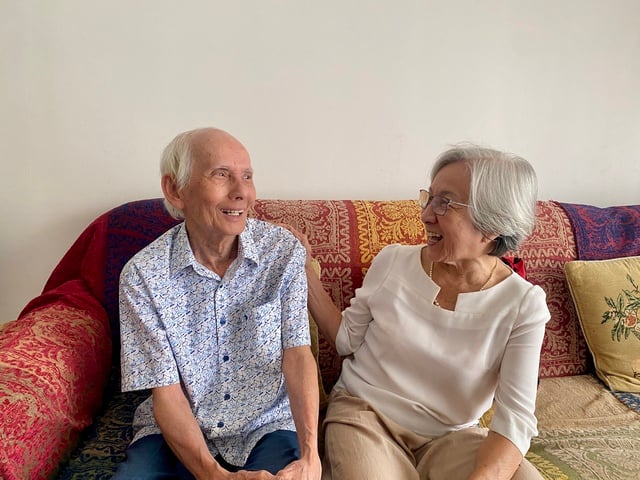
Currently, Dr. Van is living with her husband, Dr. Nguyen Binh, in Thu Duc City, Ho Chi Minh City.
PHOTO: PHAM THU NGAN
Born at a time when the country was still in turmoil, she grew up in a special situation: her father died in the resistance war against the French; her mother had to send her to an orphanage in Da Lat to work for a French family and then to France to settle down. At the age of 10, she was taken in by relatives and educated in Saigon. At the age of 14, she went to France to reunite with her mother and began her journey of studying, overcoming her fate to advance in a foreign land.
She still remembers clearly the day she left Saigon in 1960. When the plane took off from Tan Son Nhat airport, the congratulations and farewells from teachers and friends appeared clearly: "When you leave, I wish you empty-handed/When you return, return with every success". That advice became the motivation throughout the years of living and studying in France, urging her to overcome difficulties, accumulate knowledge to return and contribute to her homeland.
In France, she lived with her family in Toulouse, helping her mother run a restaurant while attending high school. Her mother wanted her to become a French citizen to facilitate her studies, but she was determined: "I want to keep my Vietnamese nationality because I want to return to Vietnam."
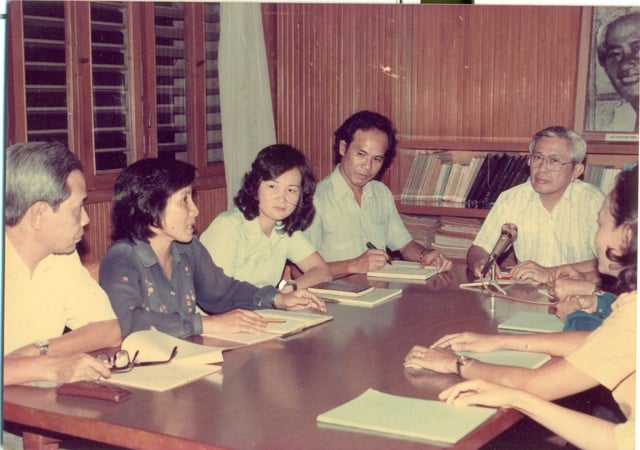
Dr. Van presented at a meeting on the production of IUDs.
In 1962, she attended a summer camp organized by the Vietnamese Student Association in France. There, she met Mr. Nguyen Binh - who later became her husband. This summer camp helped her understand more about the Socialist North, the Provisional Revolutionary Government of the Republic of South Vietnam and the National Liberation Front of South Vietnam. She also learned about the struggles of students, the pain caused by war and the ideals of the young generation who loved freedom and peace.
From then on, she told herself that she had to study to be useful to her country. She studied at the University of Orsay (now the University of Paris-Saclay), then continued her postgraduate studies and received a doctorate in macromolecular chemistry at the University of Paris VI. She chose this field because of her passion for researching composite materials - a field with many practical applications such as plastics, rubber, polyester fibers, carbon fibers and biomedical materials.
During her studies and research, she actively participated in the patriotic overseas Vietnamese movement, mobilizing support from progressive French organizations and calling for the US to withdraw its troops from Vietnam. In 1974, she worked at CAPRI under CEA-Saclay, while preparing projects that could be applied upon her return to Vietnam, such as researching contraceptive rings, producing new materials, and applying advanced technology.
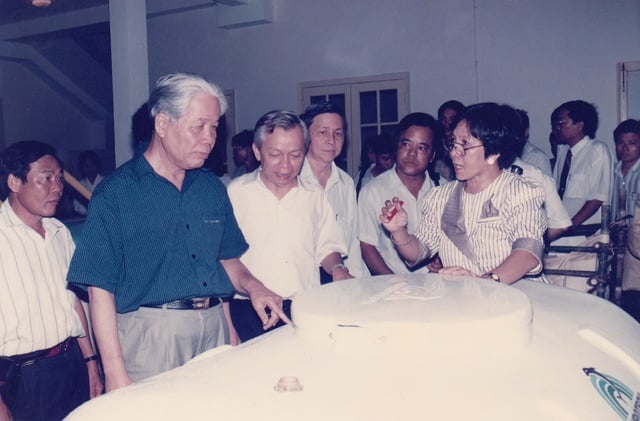
Dr. Van explains about composite tanks to the delegation of leaders of Central and Ho Chi Minh City.
PHOTO: NVCC
In 1976, she and a delegation of French expatriates attended the first session of the National Assembly of a unified Vietnam and were allowed to visit her family in the South. During the long journey from Hanoi to Ho Chi Minh City, she witnessed the severe consequences of the war, and her determination to return home grew stronger.
So in early 1978, she and her husband and three young children set out from Paris to return to Vietnam. In addition to their aspirations, the couple's luggage at that time also included specialized equipment for scientific research, from documents, experimental instruments, measuring devices, technical specifications to necessary materials for post-war reconstruction.
A committed scientist
When she first returned to Vietnam, Dr. Luong Bach Van and her husband worked at the Z181 Semiconductor Factory of the Military Technical Institute, Ministry of National Defense in Hanoi. After that, the family moved to Ho Chi Minh City, working at the Institute of Tropical Technology and then the Department of Science and Technology of Ho Chi Minh City.
In 1985, she met Mr. Duong Quang Trung, then Director of the Ho Chi Minh City Department of Health, to express her desire to produce IUDs for women. Mr. Trung immediately asked her to write a letter expressing her wishes and send it to the Secretary of the City Party Committee. A few days later, she received a piece of paper with the content: "Requesting that departments and branches create conditions for Dr. Luong Bach Van to implement the State's Family Planning Program to limit population growth" and the signatory was Mr. Vo Van Kiet.
Dr. Van recalls that at that time, the economy was still facing many difficulties, facilities were lacking, and raw materials for producing IUDs were embargoed by the US. However, thanks to the efforts and close coordination between the parties, the project was still implemented. From the first batch of 5,000 units, it increased to 50,000, 100,000 and finally 5 million "Happiness" IUDs were produced and distributed nationwide.
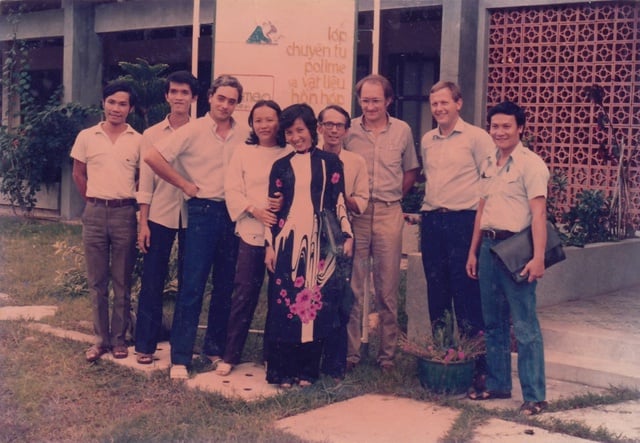
Dr. Luong Bach Van ( in ao dai ) is one of the pioneers in developing the plastics industry in Vietnam after the country's reunification.
When they learned that Vietnam had produced IUDs, the United Nations Population Fund (UNFPA) sent a delegation to inspect and was very impressed that despite facing numerous difficulties after the war, Vietnam still organized the production and distribution of IUDs safely.
In 1986, Dr. Van held the position of Director of the Plastics Technology Center, under the VIE/85/012 project funded by the United Nations Development Program (UNDP). This center, led by Dr. Van, contributed to the development of the domestic plastics industry. In addition, in her role as coordinator of the Vietnam-France science and technology cooperation project on "Polymers and composite materials", she organized many specialized training courses for the plastics industry, guided and transferred technology for the production of composite products such as boats, canoes, water tanks, etc. to 6 provinces in the Mekong Delta.
During the war to protect the southwestern border, when he learned that many soldiers had died of malaria and dengue fever, Dr. Van proactively organized the production and distribution of 5,000 "slow-release" mosquito-killing sticks, protecting soldiers on the front lines and significantly reducing casualties.
She is adventurous, dedicated and not afraid of difficulties. Sometimes she travels to the Mekong Delta to help farmers use geomembranes and geotextiles to build reservoirs for shrimp farming; sometimes she goes all the way to the Northwest to research water storage bags for people in the mountains.
At retirement age, Dr. Luong Bach Van still devoted herself to community work. In 2003, she was invited by the Vietnam Fatherland Front Committee of Ho Chi Minh City to join the Standing Committee, in charge of people's foreign affairs and mobilizing and connecting Vietnamese intellectuals abroad to join hands in building the country.
To reach a large number of overseas Vietnamese, Dr. Van proposed establishing Liaison Committees with Overseas Vietnamese in 24 districts of Ho Chi Minh City, guiding overseas Vietnamese in procedures for buying houses, investing, doing business and encouraging them to participate in social and charitable activities, supporting poor patients, and granting scholarships to students.
In 2006, she became the first president of the Ho Chi Minh City Association for Liaison with Overseas Vietnamese, and founded the Overseas Vietnamese Support Center - considered a "common home" for overseas Vietnamese when they return home.
Looking back on the past, from the difficult early days after reunification to the present, Dr. Van believes that the country is facing golden opportunities to rise strongly. She shared that she is very grateful to generations of Ho Chi Minh City leaders for trusting her with tasks and creating conditions for her and her colleagues to promote their expertise and contribute to building the city into a livable place.
Source: https://thanhnien.vn/con-muon-giu-quoc-tich-viet-nam-vi-con-co-nguyen-vong-tro-ve-viet-nam-185250428193323419.htm


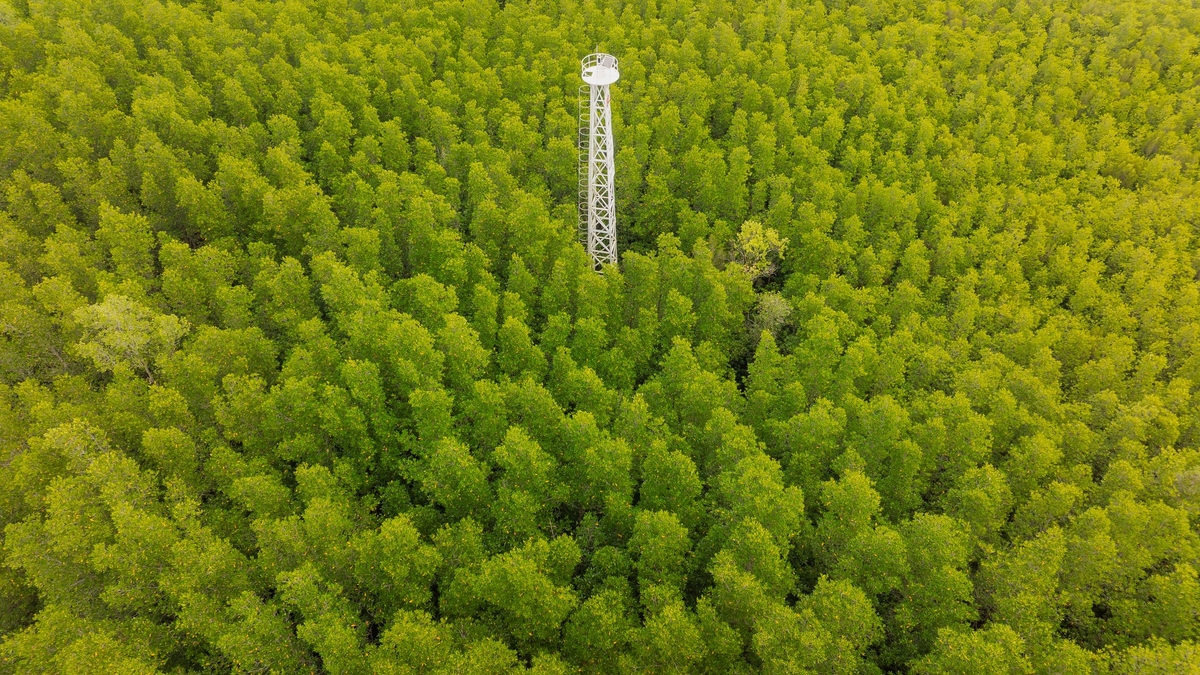
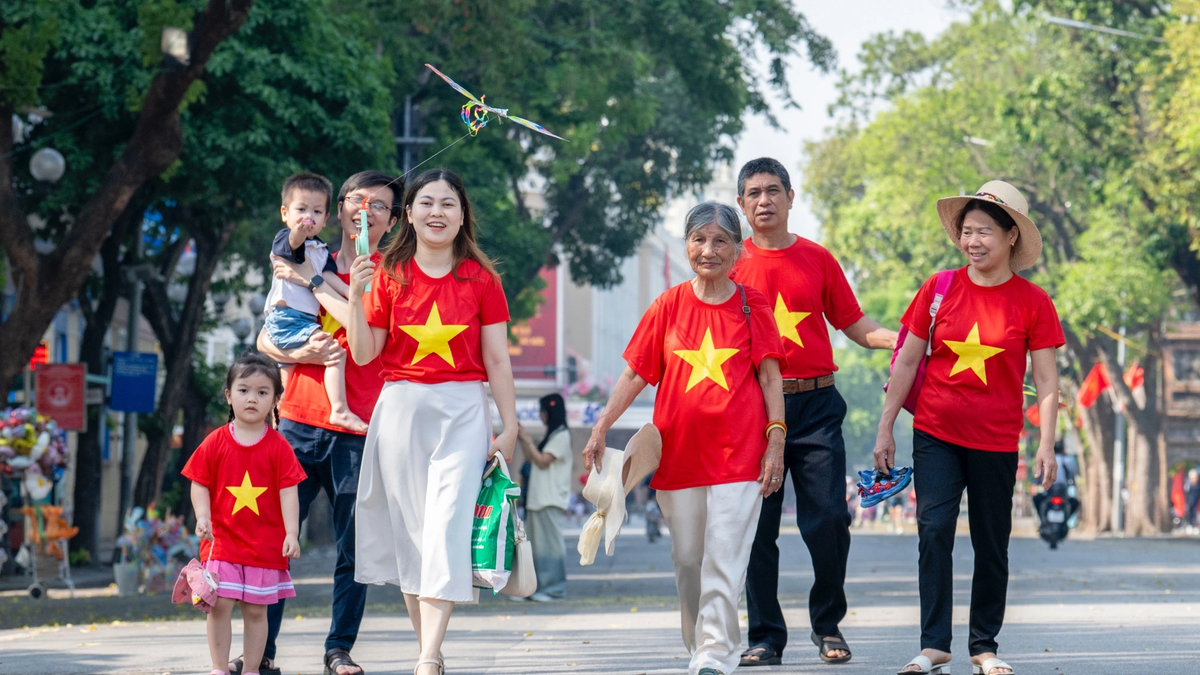

![[Photo] Bustling construction at key national traffic construction sites](https://vphoto.vietnam.vn/thumb/1200x675/vietnam/resource/IMAGE/2025/5/2/a99d56a8d6774aeab19bfccd372dc3e9)


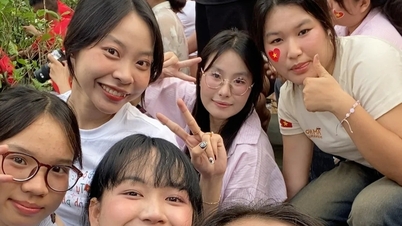


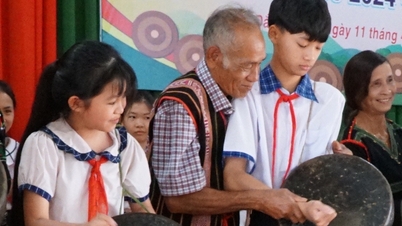
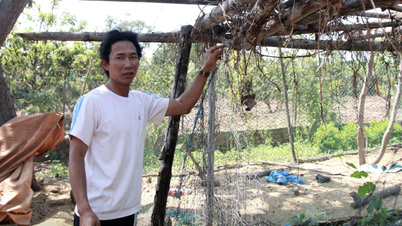











![[Photo] Binh Thuan organizes many special festivals on the occasion of April 30 and May 1](https://vphoto.vietnam.vn/thumb/1200x675/vietnam/resource/IMAGE/2025/5/1/5180af1d979642468ef6a3a9755d8d51)
![[Photo] "Lovely" moments on the 30/4 holiday](https://vphoto.vietnam.vn/thumb/1200x675/vietnam/resource/IMAGE/2025/5/1/26d5d698f36b498287397db9e2f9d16c)

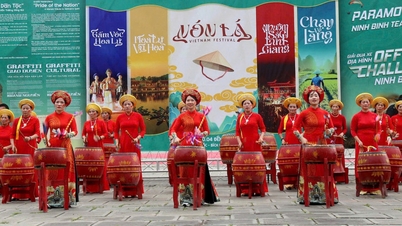

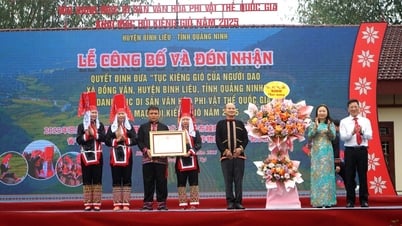





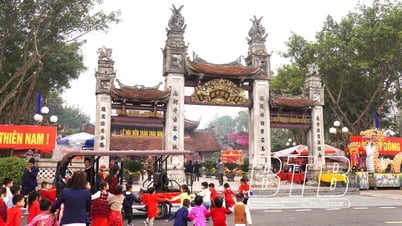



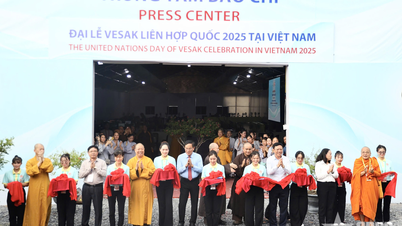

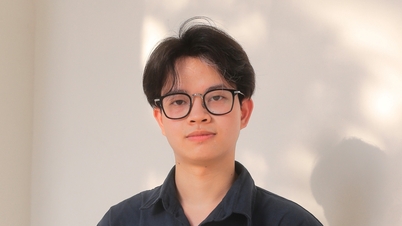







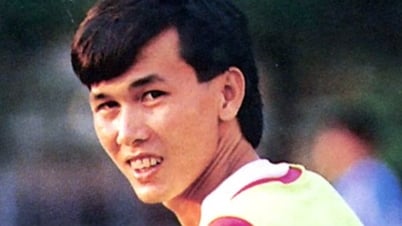








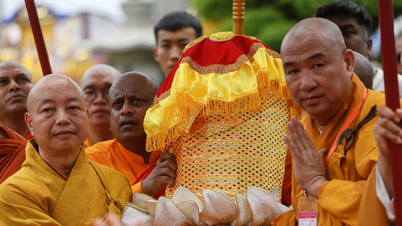




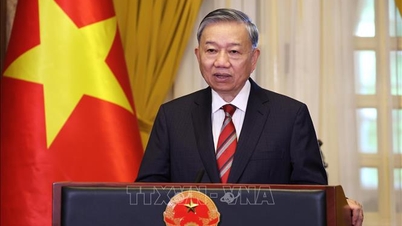











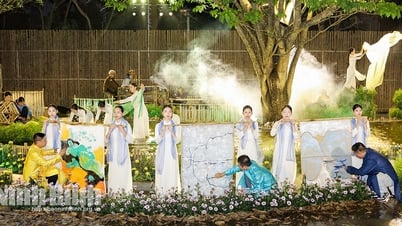
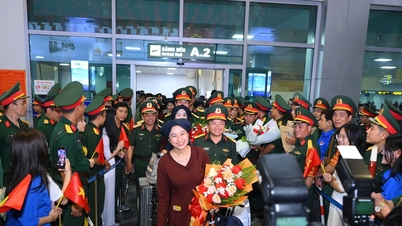

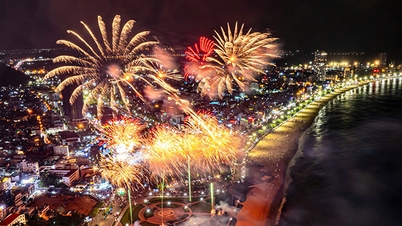


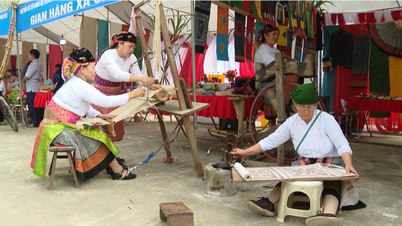
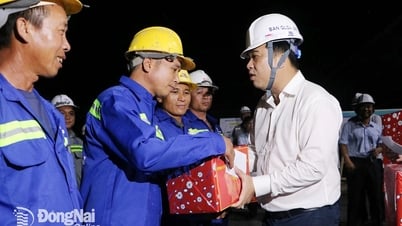



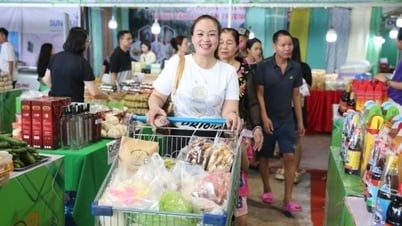

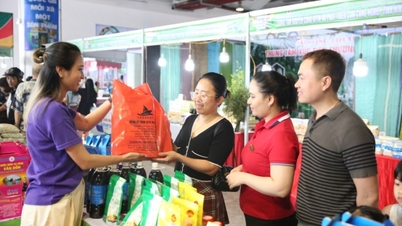



Comment (0)